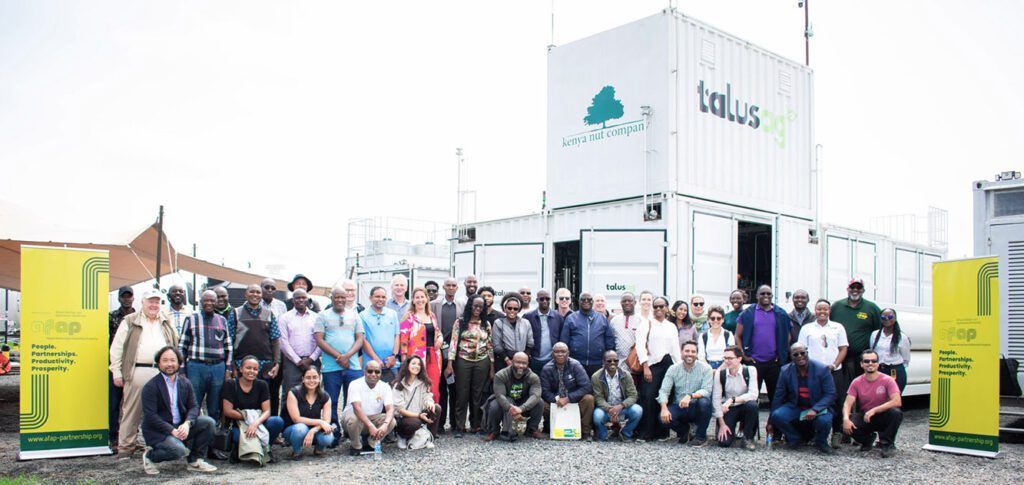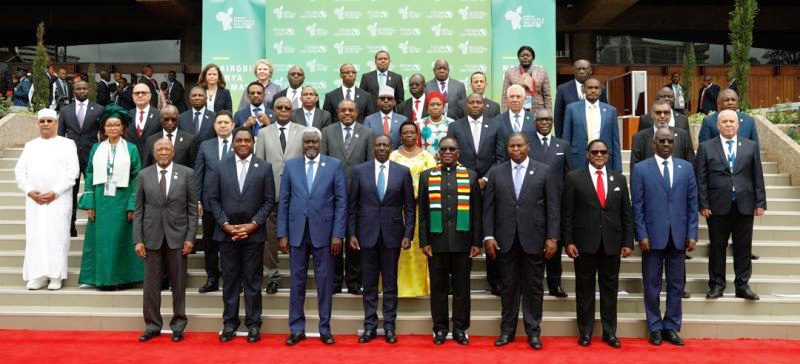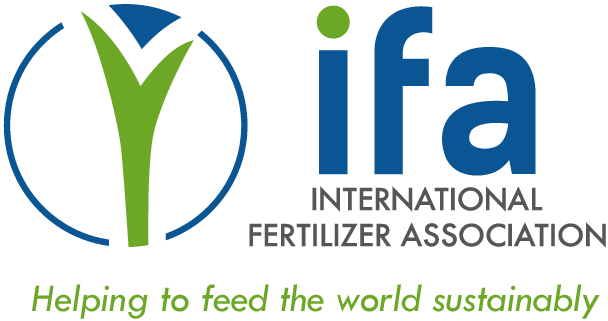Reflecting on the 2024 Africa Fertilizer and Soil Health Summit
The Africa Fertilizer and Soil Health Summit convened by the African Union Commission successfully concluded on May 9 in Nairobi, Kenya. Over the course of three days, 6,000 international delegates participated in this long-awaited event. The International Fertilizer Association (IFA) played a significant role before the Summit by acting as a focal point for collaboration and the voice of the fertilizer industry, and during the Summit by organizing side events and other activities in support of the Summit's objectives.
IFA on site
The day before the Summit, more than 80 delegates from development agencies, funding organizations, technology providers, fertilizer-producing companies and government representatives participated in a visit to Talus Renewables in Naivasha, along with two high-level policymakers: H.E. Aliyu S. Abdullahi, Federal Minister of Agriculture of Nigeria and H.E. Ali Mohamed, President Ruto’s Envoy on Climate change, Kenya.
The participants appreciated the opportunity to witness the operation of Talus’ small-scale modular green ammonia plant, acquiring a better understanding of the production technology and its potential for Africa, and the ways in which ammonia will be applied locally by the Kenya Nut Company. Discussions also addressed the options for the use of Talus’ product by smallholder farmers. IFA is grateful to its partners at Talus Renewables and the African Fertilizer Agri-business Partnership (AFAP) for co-organizing such an insightful visit.

Back at the Summit venue, IFA and AFAP co-hosted a side event in which panelists from ETG, the Fertilizer Association of Kenya (FAK), Indorama, Meridian, OCP Africa, Omnia, the West Africa Fertilizer Association (WAFA), and Yara explored ways to support the implementation of the Summit’s 10-year Action Plan, strengthen multi-stakeholder partnerships and build the necessary enabling environment for impact at scale.
The second side event organized by IFA focused on innovation and technology. Representatives of Fortescue, Talus Renewables and N2-Applied discussed the potential of low-carbon N fertilizer production technologies to enhance fertilizer supply in Africa. The latter part of the side event was dedicated to accelerating AgTech innovation in Africa through startups, and featured Phosphosolutions, Boomitra and Mohammed VI Polytechnic University (UM6P).
Additionally, IFA’s Deputy Director General, Patrick Heffer, moderated a parallel session on technology, agricultural advisory services, and capacity building for soil health and nutrient use efficiency. These discussions underscored the necessity of modern technology and robust capacity-building efforts to enhance agricultural productivity sustainably.

Key Agreements and Initiatives at the Summit
Under the theme “Listen to the Land”, the Summit showcased Africa’s collective resolve to transform its agricultural landscape. With the participation of seven Presidents from the Central African Republic, Equatorial Guinea, Kenya, Malawi, Namibia, Zambia and Zimbabwe, along with representation from over 15 countries, the Summit displayed its ambitions for Africa and paved the way to achieve food security in the continent.

Three pivotal documents have been ratified: the Nairobi Declaration, a comprehensive 10-year Action Plan, and the Soil Initiative for Africa. These documents outline strategic steps to enhance soil health and fertilizer use across the continent.
The Declaration emphasizes the role of the private sector and public-private partnerships in strengthening the fertilizer value chain. Additionally, the African Continental Free Trade Area (AfCFTA) will be leveraged to double intra-African fertilizer trade. The signatories are equally committed to the domestication and localization of the recommendations in their national agricultural investment plans:
- Tripling Domestic Production and Distribution of Fertilizers: By 2034, the goal is to triple the production and distribution of both organic and mineral certified quality fertilizers, ensuring their widespread availability.
- Agronomic Recommendations: Tailored agronomic recommendations will be made accessible to at least 70% of smallholder farmers. These recommendations will focus on specific crops, soils, and climatic conditions, promoting sustainable and efficient fertilizer use.
- Africa Fertilizer Financing Mechanism (AFFM): The AFFM will be fully operationalized to enhance the production, procurement, and distribution of mineral and organic fertilizers across the continent.
- Reversing Land Degradation: Efforts will be directed towards reversing land degradation and restoring soil health on at least 30% of degraded soil by 2034.
- Extension and Advisory Services: Ensuring that at least 70% of smallholder farmers have access to quality extension and advisory services on fertilizer and soil health from both public and private sectors.
The Nairobi Declaration is available here.
Implementation and Future Steps
The next phase following the Summit is the critical implementation of the 10-year Action Plan. Relevant instruments for this implementation are expected to be discussed during a yet to be organized post-Summit implementation day. A dynamic period awaits Africa’s agricultural policies and practices, despite concerns over resources at country-level.
The 10-year Action Plan can be found here.
On the last day of the Summit, 14 development partners signed a joint statement to support the implementation of the Nairobi Declaration and the Summit’s Action Plan, marking a significant commitment from the international community.
What next for IFA?
In the light of the Summit’s discussions and agreements, IFA is reviewing and updating its Africa strategy to support the implementation of the Nairobi Declaration and the 10-year Action Plan. This revision will ensure that IFA’s activities in Africa are consistent with the newly established continental objectives for a sustainable transformation of African food and farming systems.

